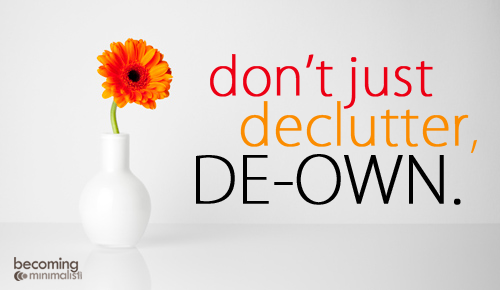“Claiming toning it down would be ideal gainful than putting together more.” – Twitter/Facebook
“Declutter”
We are a culture suffocating in our assets. We take in to an ever increasing extent (occasion, birthday celebrations, deals, needs), however seldom track down an open door to dispose of it. Subsequently, our homes top off with such a lot of stuff. Furthermore, on the grounds that we assume the best arrangement is to track down authoritative apparatuses to deal with every last bit of it, we search out greater compartments or more productive hierarchical tips and deceives. Yet, just getting sorted out our stuff (without eliminating it) is in every case just a transitory arrangement. By definition, putting together our assets is an activity that should be rehashed again and again.
At its heart, getting sorted out is essentially improving. What’s more, however we might find capacity arrangements today, we are immediately compelled to track down new ones as soon as tomorrow. Moreover, arranging (without disposing of our stuff and cleaning up) has a few other significant deficiencies that are seldom thought of:
It doesn’t help any other person. The belongings we seldom use sit on racks in our cellars, upper rooms, and carports… even while a portion of our dearest companions frantically need them.
It doesn’t tackle our obligation issues. It never resolves the hidden issue that we simply purchase an excess of stuff. As a matter of fact, commonly, the demonstration of modifying our stuff even sets us back more as we buy compartments, capacity units, or bigger homes to house it.
It doesn’t turn around our longing for more. The straightforward demonstration of coordinating our things into boxes, plastic canisters, or additional storerooms doesn’t turn around our longing to buy more things. The way of life driven tendency to find bliss in our assets is seldom foiled in any capacity through the cycle.
It doesn’t compel us to assess our lives. While revamping our stuff might make us take a gander at every one of our assets, it doesn’t drive us to assess them — particularly on the off chance that we are simply placing them in boxes and shutting the covers. Then again, eliminating assets from our home powers inquiries of enthusiasm, values, and what’s really generally essential to us.
It achieves minimal in preparing for different changes. Coordinating may give a transitory lift to our mentality. It clears a room and in this way clears our psyche, yet seldom prepares for solid, significant way of life changes. Our home is too little, our pay is nearly nothing, we actually can’t carve out sufficient opportunity in the day. We might have revamped our stuff… yet not our lives.
Then again, the demonstration of disposing of stuff from our home achieves a large number of those reasons. Not an impermanent arrangement should be rehashed. It is an activity of changelessness — when a thing has been taken out, it is eliminated totally. Whether we exchange our assets, give them to good cause, or give them to a companion, they are promptly put to use by the people who need them.
Eliminating assets starts to turn around our longing for more as we track down opportunity, bliss, and overflow in possessing less. Also, eliminating ourselves from the all-consuming craving to possess more sets out freedom for critical life altering event to happen.
On the off chance that you’re battling with how to dispose of stuff, you can:
1. Challenge yourself to eliminate the unnecessary things in your home.
2. Free yourself of the additional load in an extremely durable way.
3. Convey a garbage sack from space to-room.
4. Perceive how enormous of a gift heap you can make.
5. Kill obligation by selling what you never again need.
It doesn’t make any difference such a lot of how you eliminate them, as long as you do. For it is far superior to de-own than to constantly be cleaning up.

